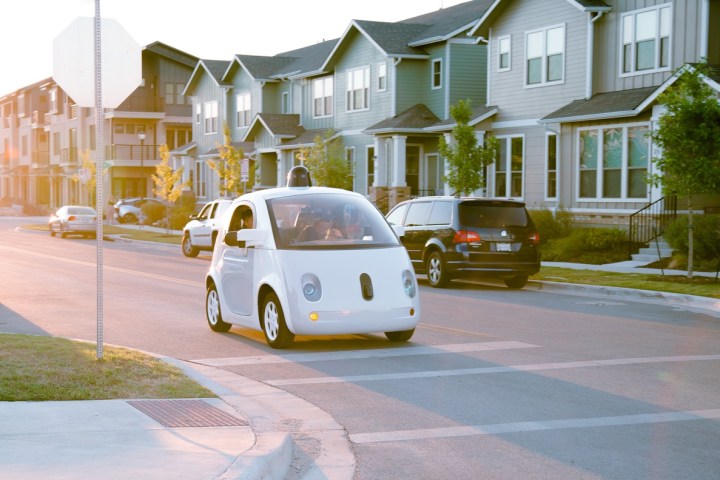
During an investor call, Victor Coleman, CEO of Hudson Pacific Properties Inc., said, “We’re seeing the Toyotas of the world, the Teslas of the world, BMWs, Mercedes. Ford now is out in the marketplace looking for space. I haven’t even mentioned the 400,000 square feet that Google’s looking to take down and the 800,000 square feet that Apple’s looking to take down for their autonomous cars as well.”
Perhaps he hadn’t mentioned it before, but he did then. So if Google is looking for about 10 acres and Apple’s seeking 20 acres, give or take, are they building test tracks or what? Certainly they’re not going to build manufacturing plants. Tesla’s Fremont, California plant consumes 5.3 million square feet. Apple’s new headquarters, under construction, will be about 2.8 million square feet, and Google’s takes up 4.8 million square feet. With the relatively small spaces Coleman mentioned, it’s likely the two companies are looking for research and development space and possibly small test tracks.
And why are Toyota, Ford, Mercedes, BMW, and Tesla also looking for land in northern California? If the center of self-driving R&D right now is Silicon Valley, it stands to reason the major car makers want to be close to the development hub. Even though we live in an increasingly connected world, there’s still much to be gained from physical proximity.
No announcements are forthcoming from the prospective tenants or property owners on exactly what real estate they’re looking for or why they want it, but it all falls together logically in the autonomous car space. It’s no secret Google’s parent company Alphabet and Apple are busy expanding their self-driving car focus in line with the parallel efforts of the major car companies. Chances are any car manufacturer that intends to stay and grow in this business space over the coming decades is already planning and investing heavily in autonomous technology.
If the big car brands want to be near the center of autonomous car action, it sounds like they’d better get busy. The demand for suitable land in California is on the rise.
Editors' Recommendations
- Waymo robotaxi attacked and set on fire in San Francisco
- Dubai Police to deploy driverless patrol cars with AI smarts
- Cruise autonomous vehicle drives over woman just after she was hit by another car
- Autonomous cars confused by San Francisco’s fog
- Apple’s rumored car could cost the same as a Tesla Model S




